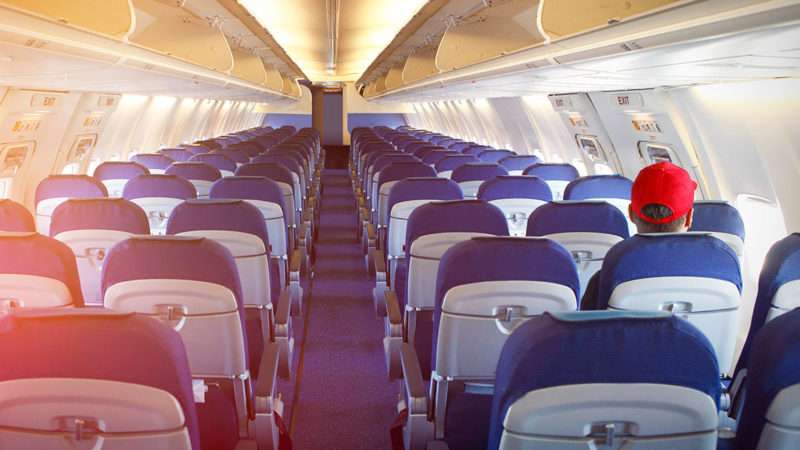Did you ever wonder where all those trillion dollar tech valuations come from? Turns out, a lot of the money comes from online programmatic advertising, an industry that gets little attention even from the companies it’s making wealthy, such as Google. That lack of attention is pretty ironic, because lack of attention is what’s going to kill the industry, according to Tim Hwang, former Google policy maven and current research fellow at the Center for Security and Emerging Technology (CSET). In our interview, Tim Hwang explains the remarkably complex industry and the dynamics that are leaching the value out of its value proposition. Tim thinks we’re in an attention bubble, and the pop will be messy. I’m persuaded the bubble is real but not that its end will be disastrous outside of Silicon Valley.
But first, in the news roundup Sultan Meghji and I celebrate was seems like excellent news about a practical AI achievement in predicting protein folding. It’s a big deal, and an ideal problem for AI, with one exception. The parts of the problem that AI hasn’t solved would be a lot easier for humans to work on if AI could tell us how it solved the parts it did figure out. Explainability, it turns out, is the key to collaborative AI-human work.
Opening the ‘Black Box’ of Artificial Intelligence | RealClearScience
We welcome first time participant and long-time listener Jordan Schneider to the panel. Jordan is the host of the unmissable ChinaTalk podcast. Given his expertise, we naturally ask him about … Australia.
Actually, it’s a natural, because Australia is now the testing ground for many of China’s efforts to bend independent countries to its will using cyber power along with trade leverage. Among the highlights: Chinese tweets about Australian war crimes, boosted by a hamhanded bot campaign. And in a move that ought to be front an center in future justifications of the Trump administration’s ban on WeChat, the platform refused to carry the Australian prime minister’s criticism of the war-crimes tweet. Tom Cotton and Marco Rubio, call your office!
And this will have to be the Senators’ fight, because it looks more and more as though the Trump administration has thrown in the towel. Its claim to be negotiating a TikTok sale after ordering divestment is getting thinner; now the divestment deadline has completely disappeared, as the government simply says that negotiations will continue. Nick Weaver is on track to win his bet with me that CFIUS won’t make good on its Tiktok order before the mess is shoveled onto Joe Biden’s plate.
Whoever was in charge of beating up WeChat and TikTok may have checked out of the Trump administration early, but the team that’s sticking pins in other Chinese companies is still hard at work. Jordan and Brian talk about the addition of SMIC to the amorphous Defense blacklist. And Congress has passed a law (awaiting Presidential signature) that will make life hard for Chinese firms listed on U.S. exchanges.
China, meanwhile, isn’t taking this lying down, Jordan reports. It is mirror-imaging all the Western laws that it sees as targeting China, including bans on exports of Chinese products and technology. It is racing (on what Jordan thinks is a twenty-year pace) to create its own chip design capabilities.
And with some success. Sultan, the podcast’s resident DeHyper, takes some of the hype out of China’s claims to quantum supremacy. But even dehyped, China’s achievement should be making those who rely on RSA-style crypto just a bit nervous (and that’s all of us, of course).
Michael Weiner previews the still veiled state antitrust lawsuit against Facebook and promises to come back with details as soon as it’s filed. In quick hits, I explain why we haven’t covered the Iranian claim that their scientist was rubbed out by an Israeli killer robot machine gun: I don’t actually believe them.
Brian explains that another law aimed at China and its use of Xinjian forced labor is attracting lobbyists but likely to pass. Apple, Nike, and Coca-Cola have all taken hits for lobbying on the bill; none of them say they oppose the bill, but it turns out there’s a reason for that. Lobbyists have largely picked the bones clean.
President Trump is leaving office in typical fashion – gesturing in the right direction but uninteresting in actually getting there. In a “Too Much Too Late” negotiating move, the President has threatened to veto the defense authorization act if it doesn’t include a repeal of section 230 of the Communications Decency Act. If he’s yearning to wield the veto, Dems and GOP alike seem willing to give him the chance. They may even override, or wait until January 20 to pass it again.
Finally I commend to interested listeners the oral argument in the Supreme Court’s Van Buren case, about the Computer Fraud and Abuse Act. The Solicitor General’s footwork in making up quasitextual limitations on the more sweeping readings of the Act is admirable, and it may well be enough to keep van Buren in jail, where he probably belongs for some crime, if not this one.
Download the 341st Episode (mp3)
You can subscribe to The Cyberlaw Podcast using iTunes, Google Play, Spotify, Pocket Casts, or our RSS feed. As always, The Cyberlaw Podcast is open to feedback. Be sure to engage with @stewartbaker on Twitter. Send your questions, comments, and suggestions for topics or interviewees to CyberlawPodcast@steptoe.com. Remember: If your suggested guest appears on the show, we will send you a highly coveted Cyberlaw Podcast mug!
The views expressed in this podcast are those of the speakers and do not reflect the opinions of their institutions, clients, friends, families, or pets.

from Latest – Reason.com https://ift.tt/36V9tlW
via IFTTT

